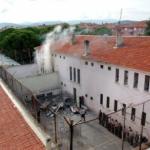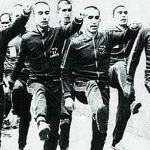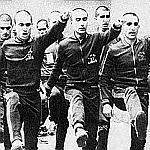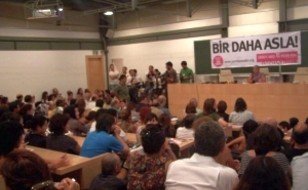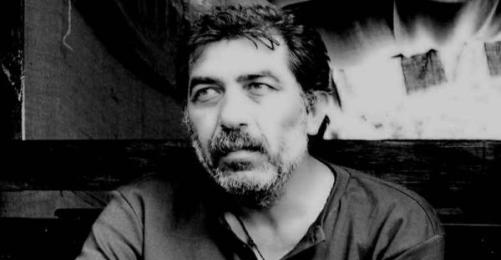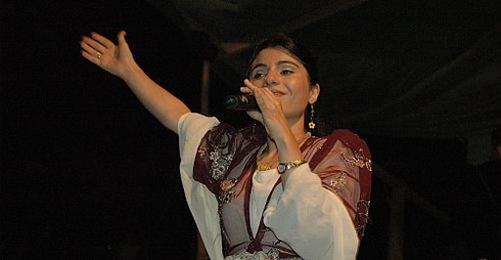The Justice And Facing The Truth About The Diyarbakır Military Prison Commission held a press release. They announced that they would try to reveal the truth by reaching the witnesses, victims and perpetrators who lived and experienced this period of 1980-84.
The commission, which is made up of journalists, academicians and human rights defenders, met at Istanbul Chamber of Medical Doctors (ITO). Prof. Dr. Gençay Gürsoy, president of the Turkish Medical Doctors Association (TTB), declared that we must to face the incidents in the Diyarbakır Prison, if we want to remove the obstacles in front of democracy.
Similarly, Tarık Ziya Ekinci, a former deputy for the Turkish Worker Party (TİP), reminded that there were military coups in other countries too, but these societies faced and settled with their pasts.
Nimet Tanrıkulu, a human rights defender, who read the press release, called upon everyone who experienced the period to give them information about it. Tanrıkulu said that they were not interested in taking revenge, but wanted to help facing the September 12 Military Coup and the extermination policies targeting the Kurds.
Likewise, lawyer Ergin Cinmen also emphasized that the obstacles in front of secularism and the Kurdish Problem were created with this military coup 28 years ago:
“If the state has a positive plan about the southeastern Turkey and the Kurds, then it must confront the Diyarbakır Prison.”
The commission is made up of 57 names, including journalist Ahmet Tulgar, journalist Berat Günçıkan, President of the Human Rights Association (İHD) lawyer Hüsnü Öndül, Prof. Dr. Turgut Tarhanlı, lawyer Fikret İlkiz, Assoc. Prof. Nazan Üstündağ, Prof. Dr. Mithat Sancar, journalist Murat Çelikkan, lawyer Fethiye Çetin, Gülten Kaya, Celalettin Can of the 78’ers Initiative, Prof. Dr. Tahsin Yeşildere, Yavuz Önen of the Human Rights Foundation of Turkey (TİHV) and doctor Mustafa Sütlaş.
The initiative had announced on May 18, 2007, the day of the anniversary of the death of Ferhat Kuntay, Necmi Öner, Eşref Ayık and Mahmut Zengin who had burned themselves in 1982 to protest the inhumane conditions in the Diyarbakır prison, that they had opened the Diyarbakır Prison file.
The commission was formed on September 12, 2007, following five-year long research, and it had immediately begun meeting with people from Istanbul and Urfa who had witnessed the period. (BÇ/EÜ/TB)





